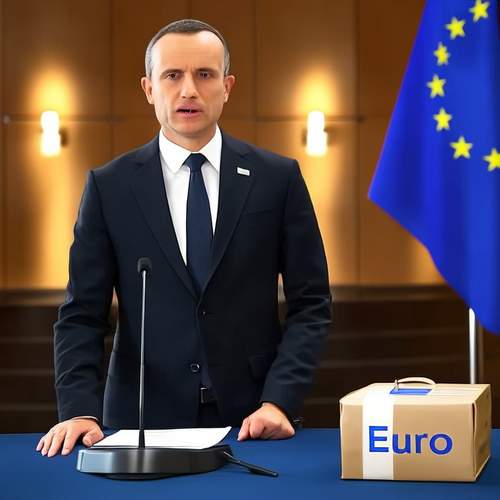In a significant step aimed at addressing the challenges posed by the influx of small parcels from China, the European Union (EU) has proposed a two-euro flat fee on billions of packages sent directly to consumers' homes. This move, which has far-reaching implications for both European and Chinese e-commerce giants, reflects the EU's efforts to streamline customs processes and ensure the safety and quality of goods entering the bloc.
The Context of the Proposal
The proposed fee comes in response to a surge in small parcels entering the EU, primarily from China. Last year alone, 4.6 billion such parcels were imported, with over 90% originating from China. This volume has created an immense workload for EU customs staff, making it difficult to ensure that all goods meet the bloc's stringent safety and quality standards. EU Trade Commissioner Maros Sefcovic argued that the new fee would "compensate the cost" of processing these parcels and help fund the EU budget.
The proposal also follows the US's imposition of new tariffs on Chinese goods under President Donald Trump's administration. These tariffs include a fee on small packages, with the tariff on items worth up to $800 recently revised down to 54% from 120%. However, a flat fee of $100 per parcel remains. The EU's decision to introduce a similar fee reflects a broader global trend towards stricter regulation of imports, driven by concerns over market competition and product safety.
The Impact on E-commerce Giants
The proposed fee would directly affect major online marketplaces, including Chinese giants Temu and Shein, which have become household names in Europe. These platforms, which have relied on the "de minimis" exemption to ship low-value items directly to customers without paying duties or import taxes, would now be expected to pay the two-euro fee for each package. Parcels sent to warehouses, on the other hand, would be taxed at a lower rate of 0.50 euros.
Temu, which claims to have 92 million users in the EU, and Shein, with over 130 million users, have previously stated their willingness to cooperate with regulators and adhere to consumer standards. However, the new fee could significantly impact their business models, which have thrived on the ability to offer low-cost, high-volume shipments. European retailers, who have long complained about unfair competition from overseas competitors, may see this as a step towards leveling the playing field.
Addressing Market Competition and Safety Concerns
European retailers have long argued that overseas competitors, particularly those from China, do not always comply with the EU's strict product standards. This has led to concerns about the safety and quality of goods entering the market, as well as the impact on local businesses. The proposed fee aims to address these issues by ensuring that all parcels, regardless of origin, are subject to the same regulatory scrutiny.
The EU's move is also driven by a desire to protect its internal market from being flooded with cheap goods. There were fears that Chinese e-commerce giants, facing new tariffs in the US, would redirect their shipments to Europe, overwhelming the market with low-cost products. By introducing a flat fee, the EU hopes to mitigate this risk and ensure that all market participants operate on a level playing field.
The Broader Implications
The EU's decision to introduce a flat fee on small parcels has broader implications for global trade and e-commerce. It signals a growing trend towards stricter regulation of imports, driven by concerns over market competition, product safety, and the need to protect domestic industries. This trend is likely to continue as countries around the world seek to balance the benefits of global trade with the need to safeguard their economies and consumers.
For e-commerce platforms like Temu and Shein, the new fee represents a significant challenge. They will need to adapt their business models to account for the additional costs, potentially passing some of these costs on to consumers. This could affect their competitive edge in the European market, where they have built a reputation for offering low-cost, high-quality products.
The EU's proposal to introduce a two-euro flat fee on small parcels is a bold move aimed at addressing the challenges posed by the influx of low-value shipments from China. By ensuring that all parcels are subject to the same regulatory scrutiny, the EU hopes to protect its internal market, ensure product safety, and level the playing field for local retailers. While this decision will undoubtedly impact e-commerce giants like Temu and Shein, it reflects a broader trend towards stricter regulation of imports in the global economy.
As the EU moves forward with this proposal, it will be crucial to monitor its impact on both European consumers and global e-commerce. The success of this initiative will depend on the ability of all stakeholders to adapt to the new regulatory environment and find ways to balance the benefits of global trade with the need to protect domestic markets and consumers. The EU's leadership in this area could set a precedent for other countries looking to address similar challenges, shaping the future of global trade and e-commerce for years to come.




















